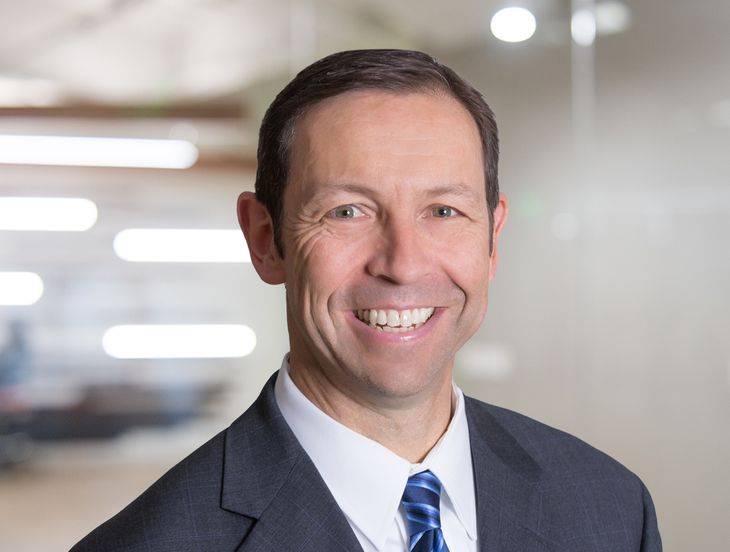Flying Solo: Can a Single Employee’s Workplace Complaint Qualify as Protected Concerted Activity?
Insights
1.28.22
Against the backdrop of workplace COVID-19 vaccine mandates, increased employee gripes about working conditions, and a workforce empowered like never before, employers are beginning to grapple with a new challenge – whether a single complaint lodged by an employee could be considered “protected concerted activity” such that a full spectrum of legal rights shields that lone worker. With the National Labor Relations Board’s (NLRB’s) pendulum now swinging toward robustly enforcing employees’ rights – including broadening the rights of employees who engage in protected concerted activity (PCA) – troubling missives from the NLRB’s General Counsel has employers questioning whether these solo complaints are enough to trigger protections for workers and additional obligations for businesses.
General Counsel Signals That Flying Solo Might Be PCA
It is well established that employees who act “in concert” to raise common issues concerning wages, hours, or other working conditions are engaged in PCA for the purpose of mutual aid or protection – regardless of whether they are unionized. Employees are protected from retaliation when they engage in PCA, and any violations could open the employer up to a variety of repercussions. A successful retaliatory termination complaint could result in the award of back pay, reinstatement, and monetary damages, depending on the complaint.
Two relatively recent Trump-era decisions by the NLRB seemingly put to bed the question of whether an employee flying solo with their complaints could trigger PCA protections.
- In 2019’s Alstate Maintenance, a Board majority found that an airport skycap’s comment to his supervisor that he and other skycaps did not want to assist with a soccer team’s equipment because “we did a similar job a year prior and did not receive a tip for it,” was held to be not for mutual aid or protection, and thus not PCA. This was true even though the bulk of skycaps’ compensation came from customer tips – and that the worker mentioned other skycaps in the same boat.
- That same year, in the Quicken Loans case, a Board majority found that an employee’s comments to a coworker about having to handle a customer call that was a “waste of time” was also not for the purpose of mutual aid or protection. This was because there was no evidence that the conversation concerned improving working conditions.
Both decisions held that there was a missing link in the chain, as the comments were not based on, or aimed at changing, an existing employer policy or practice. But the million-dollar question now facing employers is whether these holdings stand up under the new Board? Some troubling activity from the Biden NLRB’s General Counsel gives reason to believe that the Board may push the envelope on PCA and allow solo complaints to serve the basis for such protections.
NLRB memo 21-03 published last March by then-Acting (and now Deputy) General Counsel Peter Sung Ohr suggests certain conduct is “inherently concerted,” noting that protected, concerted activity “begins with a conversation among employees.” It also suggests that even though contemplation of group action may be indicative of concerted activity, it is not required in order to trigger PCA. This memo seems to be signaling that the General Counsel’s Office will not only “vigorously enforce” rights to engage in protected concerted activity but may look to expand such rights in the coming years as well.
Complaint About Vaccine Mandates
How might this new direction impact workplaces in the coming weeks and months? Take the following scenario for example: What if an employer has a vaccine mandate in place – either because they are subject to the CMS Healthcare Mandate, or because they fall under the federal contractor designation is upheld, or because they issue their own vaccine mandate – and an employee complains about the mandate? What if they then refuse to get vaccinated, providing no valid excuse or accommodation request? And then what if the employer then terminates the employee’s employment? Would that solo action be considered an unfair labor practice under the current Board?
The answer depends on how far the NLRB expands the definition of PCA. Imagine in this example that the employer does not want to enforce a vaccine mandate but its hand is forced by the CMS rule to require the vaccine. It is hard to imagine how the employee’s complaint could be aimed at changing an existing employer policy or practice, as the mandate is neither an employer policy and/or practice but instead a federal mandate which requires compliance.
However, based on the language used in the recent General Counsel memo, it’s also not difficult to imagine that this factual scenario could result in the filing of unfair labor practice charges by employees or labor unions. Therefore, employers should carefully review vaccine mandate protocols and ensure that any adverse action you hand down to an employee is based on lack of compliance and unrelated to PCA. If you are considering disciplining, discharging, or handing down any adverse consequences for an employee who recently engaged in possible PCA, then you should consult with counsel and assess potential risks.
How Work Stoppages And Wildcat Strikes Fall into This New Paradigm
In additional to filing complaints, employees or labor unions may utilize other pressure tactics to support their positions. We are seeing an increase in PCA activities including using social media platforms to garner support for striking employees, work stoppages, demands for premium pay or improved working conditions, and public protests. Fueled by concerns over health and safety and divisiveness caused by vaccine mandates and the current political and social climate, employees are showing more of a willingness to take measures on their own without the support of union leadership to withdraw labor. Such actions are generally referred to as “wildcat strikes” and can range from coordinated sick outs to walkouts. News reports from 2021 evidence a substantial increase in workers walking out seeking to force better wages and working conditions.
Concerns related to call-outs and wildcat strike activity have increased over the last year, and we’re seeing new ways that workers and advocates are garnering public support during these challenging times. One recent extreme example involved computer programmers hacking a company’s website to make hiring replacement employees extremely difficult.
For unionized business with a no-strike clause, these actions likely violate the collective bargaining agreement. For non-union employers and employers without a no-strike clause, these actions signal a greater willingness of employees to take proactive measures. If workers articulate a generalized fear of contracting COVID-19, then these measures will generally be protected under the National Labor Relations Act. These challenges beg the question what employers are to do to reduce the risk of increased PCA.
Guidance
From a practical perspective, employers need to train human resources personnel, supervisors, and managers to recognize PCA. You should establish a non-retaliatory action plan to deescalate and address the underlying issues. You should also develop written communication strategies that seek to reinforce a culture of health and wellbeing and actively refer to it when addressing concerns. Finally, you should work with counsel to develop contingency plans for responding to PCA.
We will continue to monitor the situation and provide updates as more information becomes available. Make sure you are subscribed to Fisher Phillips’ Insight system to get the most up-to-date information. Any questions may be directed to your Fisher Phillips attorney, the authors of this Insight, or any attorney in our Labor Relations Practice Group.
Related People
-
- Tami Essis Culkar
- Partner
-
- Todd A. Fredrickson
- Partner

